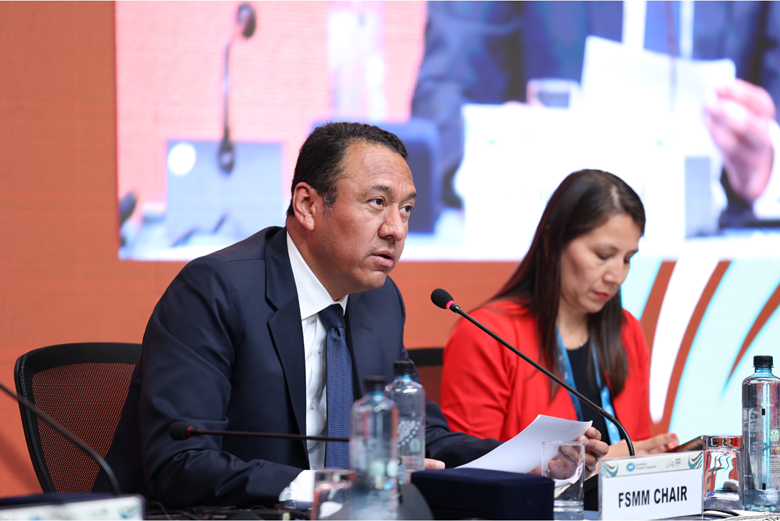APEC Ministers Call for Holistic Approach to Address Growing Food Security Crisis

As global food security faces unprecedented challenges, urgent action is needed to address the complex issues impacting both global and Asia-Pacific regions. With the intertwined effects of climate change, supply chain disruptions and economic inequality, the stability of food systems is increasingly at risk.
“Food security is not just a matter of quantity but also of quality,” said Ángel Manero Campos, Minister of Agrarian Development and Irrigation of Peru, as he welcomed ministers to Trujillo.
“It encompasses the availability, accessibility and utilization of food. It requires a holistic approach that considers economic, environmental, and social dimensions,” said Minister Manero, who also served as FSMM Chair of the 9th Food Security Ministerial Meeting.
Across the globe, climate change is emerging as a primary threat to food security. Additionally, disruptions to supply chains, exacerbated by recent pandemics, are causing food shortages and driving up prices. The growing global population further intensifies the demand for food, placing additional strain on already depleted resources. Economic inequality remains a significant barrier, with millions unable to afford sufficient and nutritious food.
“The COVID-19 pandemic has underscored the vulnerabilities in our agri-food systems and highlighted the need for robust and resilient agricultural practices,” said Minister Manero. “However, it has also reminded us of the connection of our global community.”
In the Asia-Pacific region, food security challenges are magnified by natural disasters, which devastate crops and infrastructure. Economic disparities lead to uneven food accessibility and affordability, while rapid urbanization results in the loss of valuable agricultural land.
“The Asia-Pacific region, with its diverse landscapes and rich agricultural heritage, has a unique opportunity to lead the way in fostering sustainable agricultural practices and ensuring that every individual has access to nutritious and sufficient food,” Minister Manero added.
“The complexities of food security require joint coordinated actions at the regional and global levels,” he continued. “One of the key areas where we must focus our efforts is to provide the necessary support for inclusion and empowerment of smallholder farmers, small and medium enterprises, women, young people, Indigenous Peoples and other groups with untapped economic potential.”
Minister Manero urged members to continue to prioritize sustainable agricultural practices that preserve the natural resources and protect the environment.
“Climate change poses a significant threat to agriculture, and we must take proactive measures to reduce its impact,” he said. “This includes promoting agroecological practices, investing in renewable energy sources, and fostering sustainable land and water management practices.”
Minister Manero further underscored the importance of regional cooperation to address food security challenges. “By working together, we can develop regional food reserves, enhance trade facilitation, and ensure the efficient flow of agricultural products across borders,” he said. “We can also leverage digital technologies to improve agricultural productivity, enhance market transparency, and reduce food loss and waste,” he added.
Minister Manero concluded the session by reiterating APEC’s commitment to achieving the APEC Putrajaya Vision 2040, including the implementation of the Aotearoa Plan of Action. This includes lasting food security, food safety, and improved nutrition for all as well as reducing food loss and waste in the region by promoting agricultural and food trade, sustainability, innovation, and by promoting green, resilient, and low-emission agriculture.
For further details, please contact:
APEC Media at [email protected]

